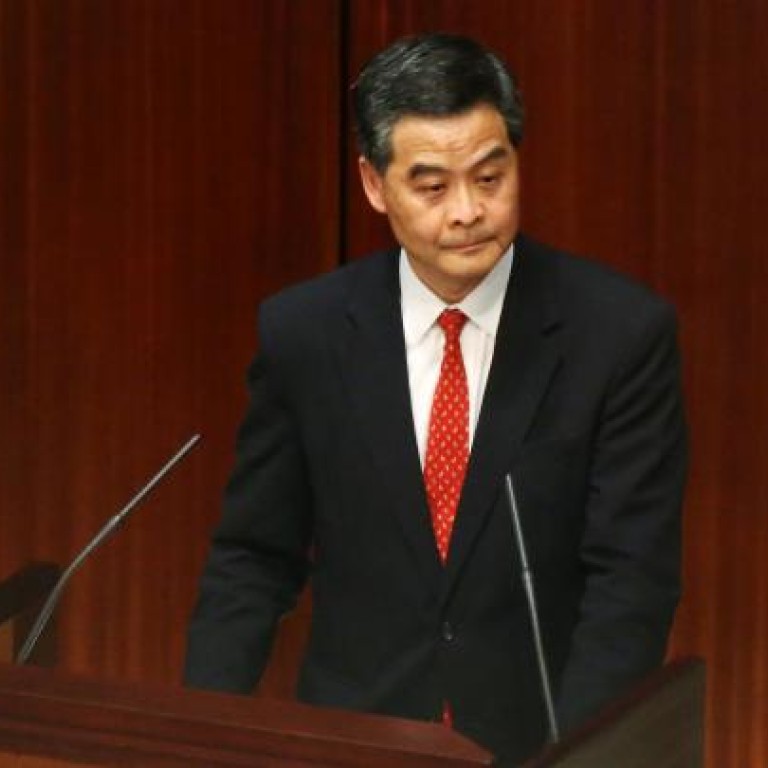
Legco candidates back CY Leung over 'flats for locals' plan
Legco slates polled reject the chief executive's government restructuring plans but agree with limits on sales of homes to non-Hongkongers
It might be difficult for Chief Executive Leung Chun-ying to find any common ground with his rivals, but a survey conducted by the found that one policy does have would-be legislators' support: Hong Kong property for Hong Kong residents.
Out of the 50 slates of Legislative Council election candidates who have responded to the survey, 32 said they backed Leung's electoral pledge to guarantee some private flats be sold only to local residents.
However, Leung's government restructuring plan is likely to be voted down if those respondents are elected.
Instead, 70 per cent of the respondents urged the government to launch consultations on electoral reform and not make any changes until the 2017 chief executive and 2020 Legco elections.
Most of the survey respondents were pan-democrats. Candidates from major pro-establishment factions including the Democratic Alliance for the Betterment and Progress of Hong Kong and the Federation of Trade Unions declined to respond.
Earlier this month, the invited all 127 slates of candidates running for directly elected and trade-based seats in the Legislative Council to respond to a questionnaire that covered issues such as political reform, Leung's government restructuring plan, the introduction of national education in schools, and land and environmental policies. Barely 52 per cent of the 67 slates of candidates in geographical constituencies had replied by last Friday, while only 15 out of 60 functional constituency slates of candidates answered.
The controversial proposal "Hong Kong property for Hong Kong residents" was backed by 21 slates running for directly elected seats and 11 slates running for functional constituencies, including the "super lawmaker" seats, which allows 3.2 million voters not belonging to the traditional functional constituencies to cast ballots.
As part of the proposal, Leung promised to study the feasibility of limiting sales of homes to non-local buyers. The Democratic Party, the Civic Party, the Labour Party and the Liberal Party all supported the policy, saying that it could help to curb property speculation by mainlanders in Hong Kong and help stabilise property prices.
The radical People Power party has reservations about the policy because no details have been revealed yet.
Independent candidates Huen Wong, running for the legal sector seat, and Tang Yu-lap, campaigning for the financial services sector, opposed Leung's idea because they thought the policy would be difficult to enforce and property prices should be determined by the market.
Patrick Lau Sau-shing of the architectural, surveying and planning sector also objected to it, saying Hong Kong was an open city operating under a free market economy.
Meanwhile, 38 slates of candidates said they opposed Leung's proposal to introduce the posts of deputy chief secretary and deputy financial secretary as part of a government restructuring.
Some 29 slates were also opposed to plans to add a culture bureau and technology and communications bureau to the existing framework.
The New People's Party, Liberal Party, Tang and Peter Chan Po-fun, an independent running in the accounting sector, backed the whole restructuring plan.
The Civic Party's candidates were among those who opposed creating the deputy posts but believed the new bureaus were needed. Almost all responding candidates supported amending legislation to allow the chief executive to have a political party affiliation when universal suffrage is introduced in 2017.

